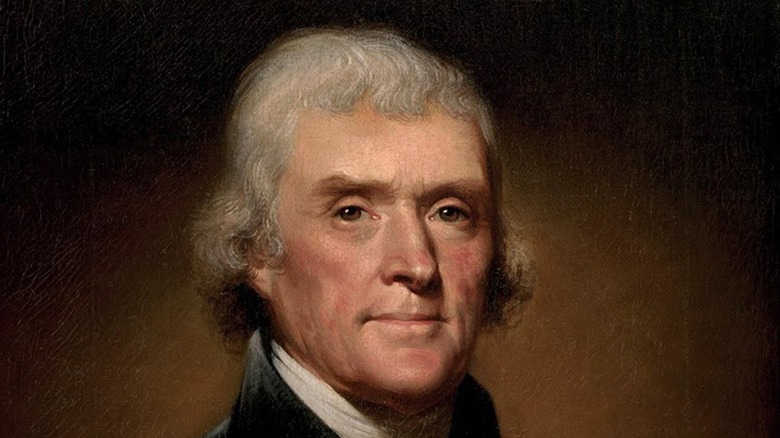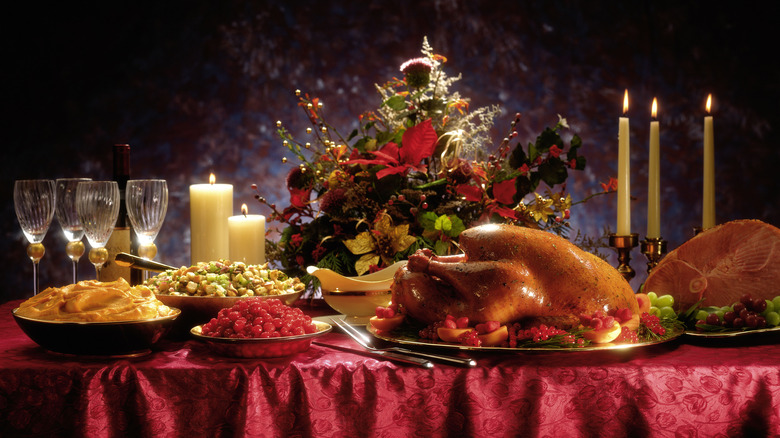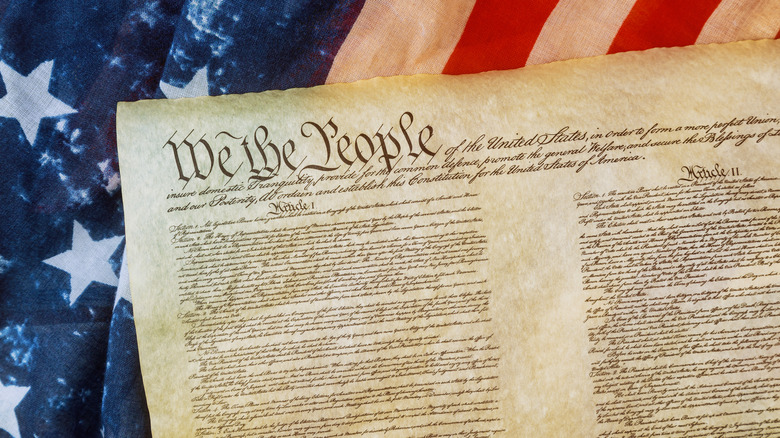Why Thomas Jefferson Refused To Participate In A Thanksgiving Tradition
Thanksgiving is a staple holiday in the American tradition, and it's celebrated by millions of families across the nation. Bountiful feasts filled with roasted turkey, mashed potatoes, pumpkin pie, and everyone's favorite uncle who starts talking about politics at the dinner table. The holiday is supposed to represent being grateful and celebrating the not-so-accurate depiction of how Europeans and Native Americans interacted with one another when colonists first arrived. However, for as long as this holiday has been around, only one president has opposed it: Thomas Jefferson.
Jefferson wasn't opposed to Thanksgiving for the food, the politics, or the history lesson the event portrayed. Instead, he opposed the holiday out of a more nuanced stance, and one that was a crucial issue during this time. It had to do with the separation of church and state and using his presidential powers in the most appropriate way he deemed fit (via History).
A history of Thanksgiving
For context, some history about the holiday needs to be settled. In the colonial days of the United States, multiple "thanksgivings" had been enacted, mainly thanking God for some certain event or thing, making these events mostly religious by nature (per Britannica). The holiday we celebrate as Thanksgiving actually started out as one of these religious events, with the colonists at Plymouth Rock celebrating the peace treaty that was formed with the Wampanoag people after the two groups had a two-day celebration with one another.
In fact, one of these thanksgivings was proclaimed when the U.S. Constitution was ratified as a way to thank God for the new nation, but in 1798, Congress rescinded this proclamation. The religious nature of the holiday is where Jefferson had his qualms with the celebration, as he believed that by celebrating this event and declaring it a national holiday, he was favoring certain religious groups over others and thus violating the First Amendment, according to History.
Jefferson's issue
This resistance toward allowing the federal government to endorse any sort of holiday with religious ties made Thomas Jefferson a target of religious groups and opposing political parties that characterized him as non-religious or someone who wanted Americans to stop believing in God in general, according to National Geographic. This was a major hitting point for the Federalists, who were the party that opposed Jefferson's very own Democratic-Republican Party since many Federalists were religious North Easterners (via History).
Jefferson's biggest mistake when it came to this idea was that he never really explained himself to the public. Though Jefferson was never a fan of instituting a federal celebration of Thanksgiving, he did enact his own while he was governor of Virginia. To Jefferson, the difference was that the federal government shall endorse no particular religion, but the states were left to themselves to decide what holidays they should celebrate and which ones they didn't. Given that Jefferson was an avid supporter of states' rights, one can see how he came to this conclusion. However, given his lack of transparency on the issue, he was dubbed the "anti-Thanksgiving president" for years to come (via History).


